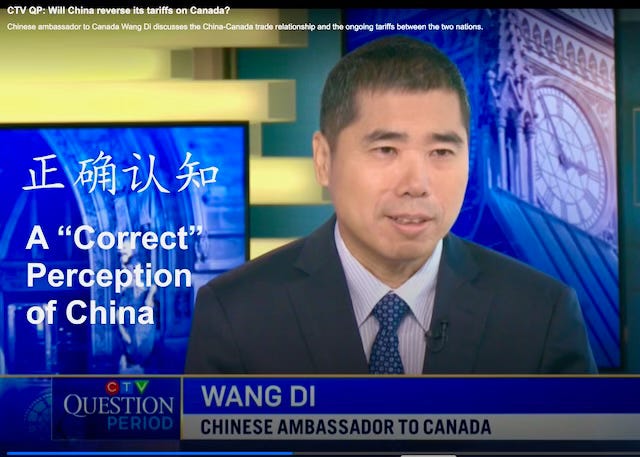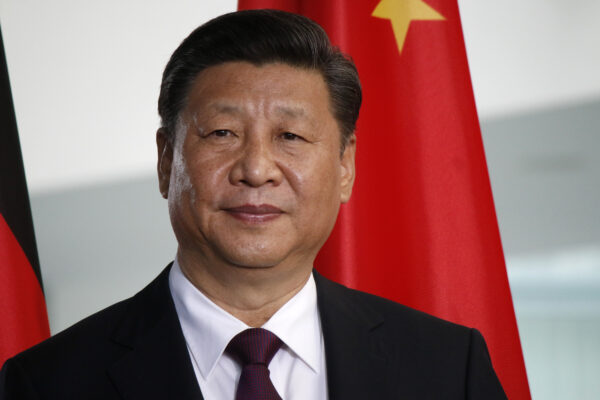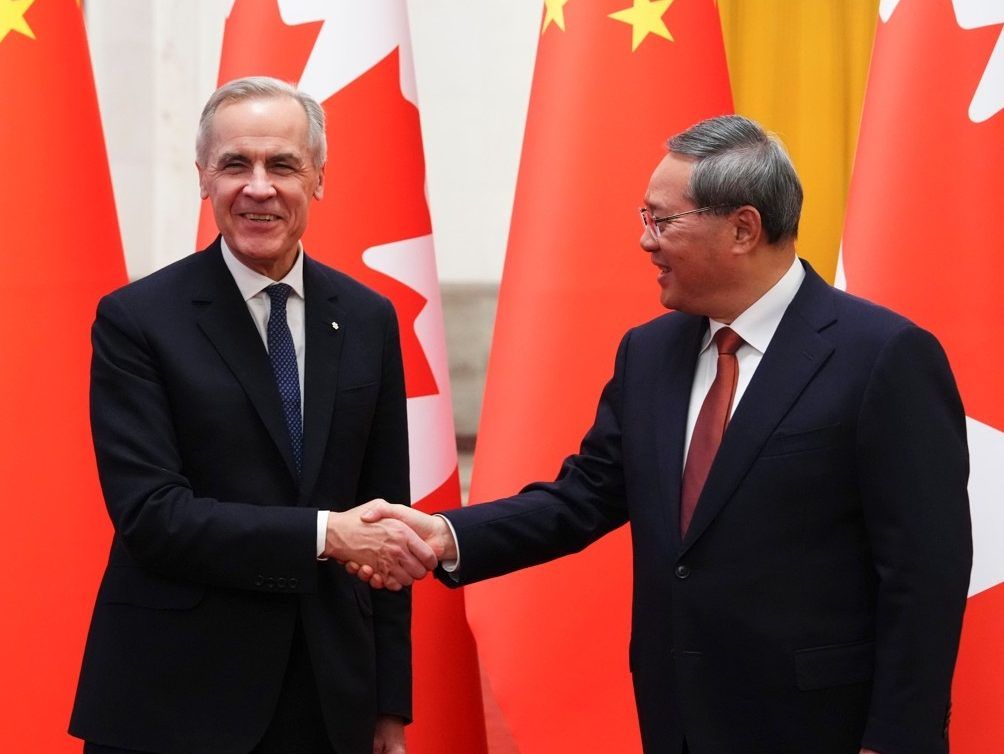Correcting Perceptions
The key phrase “
correct perception” (正确认知/zhèngquè rèn zhī) encompasses political demands rooted in decades of Communist Party discourse: never question the legitimacy of its authoritarian rule; respect “core interests” like the CCP’s entitlement to rule Hong Kong, Tibet, Xinjiang, and Taiwan; stop supporting American measures to constrain Beijing’s drive to dominate East Asia and reshape the international order; abandon the
Indo-Pacific Strategy’s core premise that China is a “
disruptive power”; and stop framing the Party-state as a national security
threat, systemic rival and violator of international treaties.
“Correct perception” also reflects an ideological tradition that goes back to Vladimir Lenin and Mao Zedong that the CCP has a monopoly on truth. It’s binary. Either you understand it “correctly” and accept its political system and red lines, or you are wrong—and will suffer. General Secretary Xi Jinping has doubled down on this thought control doctrine to impose internal discipline and pump out propaganda narratives.
This is the language of diplomatic gatekeeping, not reconciliation. You want a meeting with Xi? There’s a price. You know what you need to do. First
create the conditions (创造条件).
When Ambassador Wang
complainsof “smearing and attacking on China” about its treatment of Hong Kongers, Uyghurs, Tibetans and Taiwanese, and “attacking and hyping up” its political interference, espionage, and transnational repression, and protests that this harms the foundations of friendship, and indeed “
hurts the feelings of the Chinese people” (伤害中国老百姓的感情) — he’s gaslighting people for objecting to injustice, bullying and massive abuses of human rights.
This is rhetorical entrapment, not friendship based on mutual understanding. It’s an attempt to redefine the baseline of the relationship so that criticism is betrayal and the price of cooperation is silence and acquiescence.
Chinese diplomats routinely deploy such coded language. Their well-rehearsed calls for “pragmatic cooperation” and “
seeking common ground while maintaining differences” (求同存异) are not proposals to politely disagree. They’re demands to ignore differences on values and national security concerns and prioritize business deals and market access, further enmeshing countries in economic dependency and elite complicity.
When Ambassador Wang says our two countries have “no fundamental conflicts of interest,” he’s insisting we forget about China’s
decisive enablingof Russia’s invasion of Ukraine, support for Iran and North Korea, and adversarial behaviour toward other democracies.
Share Michael Kovrig's Strategic Narratives
Negotiating tip: when Chinese officials declare that two sides “need each other,” it usually signals that the CCP needs something. This year, it’s market access to dump its overproduction of electric vehicles, aluminum and steel.
These nuggets of Party-speak are also being dispensed to audiences in Australia, New Zealand, Japan, Europe, and elsewhere, who have experienced a superficial charm offensive since late 2022. (Canada’s was delayed until Justin Trudeau departed the scene.) By portraying China’s government as a responsible pillar of international order and blaming all problems on Washington, Chinese officials hope to benefit from America’s belligerent turn and lull other countries into complacency about their own drive for geopolitical primacy.
The message is that partnership with China requires accepting your place in a Beijing-centric global hierarchy. Unmentioned is that much of Donald Trump’s ire with the global trading system stems from the massive distortions forced upon it by China’s mercantilist, state-guided economic policies. Those same distortions are behind the PRC’s trade disputes with Canada.
In his October CTV interview, Ambassador Wang even redeployed the old Chinese proverb, “the one who tied the knot should be the one who unties it” (Wang spoke Mandarin and the actual proverb he used was “解铃还须系铃人”—
he who tied the bell (on the tiger) must untie it) to argue that “China is not the one to blame.” In his narrative, Canada is the wrongdoer because it imposed tariffs and hurt China’s EV producers, and Beijing is fairly and righteously defending itself by blocking canola and other agri-food.
It’s more diplomatic gaslighting: invert blame, pose as the aggrieved party, and hold out the prospect of reconciliation. In reality, Canada’s tariffs are a necessary alignment with Washington to preserve an integrated automotive industry and foster nascent domestic EV production. They’re also more than justified by the need to counteract industrial policies that may add up to a staggering
four percent of China’s GDP, have warped its economy and are now engineering its overwhelming dominance in advanced technologies and global manufacturing supply chains. The CCP has tied all of us in this knot.
As Anita Anand takes her first trip to China as foreign minister, her interlocutors may try to sell her another Chinese proverb: “get on the train first, buy the ticket later” (先上车后补票). We can have immediate pain relief if Ottawa drops duties, while the hidden costs to the country’s manufacturing base and sovereignty pile up slowly during other politicians’ watches. Don’t be surprised if the Chinese then come back looking for more concessions.
If Beijing really wants to repair the relationship, it should begin by untangling its own knots: stop using coercion, exporting economic distortions, interfering in Canada’s politics and society, helping
Russia kill Ukrainians, and demanding ideological and systemic acquiescence.
The Communist Party is unlikely to do any of those things. Party-state officials may be willing to change how China is perceived by adjusting style and making reversible, targeted economic gestures when they find it expedient to do so. Causing them to change their political culture, worldview and intentions, and the substance of the policies that flow from them, would be challenging, to put it mildly.
So what should Canadians do? Don’t get stuck in the syrup. Decode the slogans. Remember that the CCP’s charm can turn to menace in a heartbeat. Don’t relinquish leverage. Increase efforts to articulate our own core values, strengthen our sovereignty, and diversify and deepen relations with more reliable partners. Only then can we maintain our freedom to form our own “correct” perceptions.

 www.thecanadianpressnews.ca
www.thecanadianpressnews.ca




















